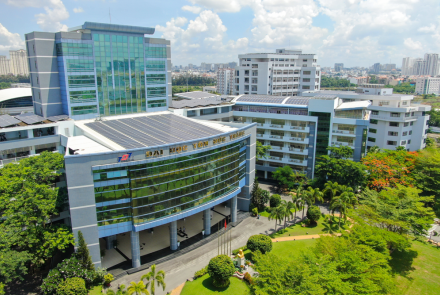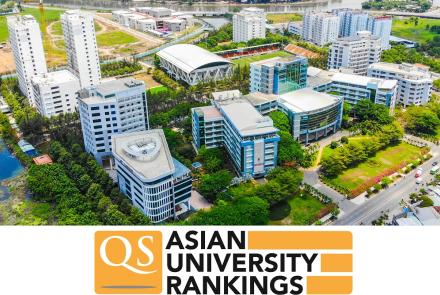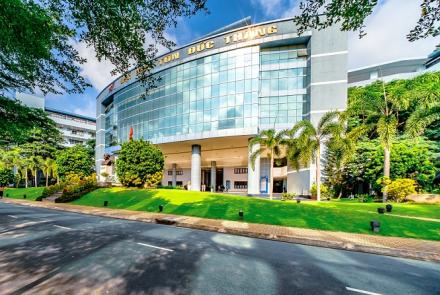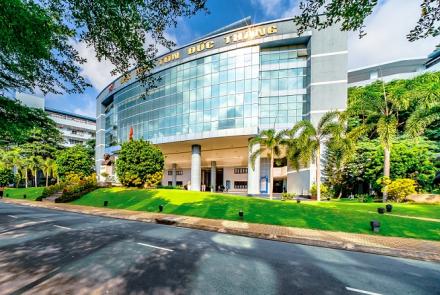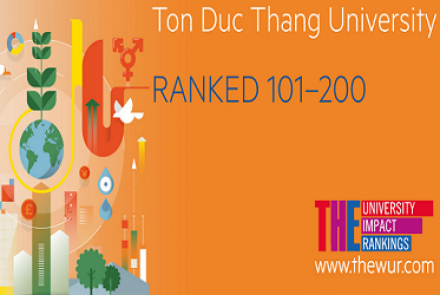Ton Duc Thang university strives for greenhouse gas emission reduction according to Paris agreement
The Paris Agreement is the agreement of the 2015 United Nations Climate Change Conference in the framework of the United Nations Framework Convention on Climate Change (UNFCCC) on dominating measures to reduce carbon dioxide from 2020. This Agreement was negotiated during the 21st Conference of the Parties to the Climate Convention in Paris and adopted on December 12th, 2015. The Paris Agreement was proposed since 2015 which was recognized as the year with the most obvious signs of climate change having the highest average global temperature increase in the last 136 years, and also the year with the highest greenhouse gas emission which was assessed by the US National Oceanic and Atmospheric Administration (NOAA). Climate and extreme weather events under the impact of climate change are complicated and unpredictable, causing grave consequences for all countries in the world.
In Ho Chi Minh City (HCMC), environmental and climate change issues pose many challenges- requiring the City to have effective, long-term solutions associated with the view of sustainable development. Under the Low Carbon City Development Program, Osaka City has assisted HCMC in developing an action plan to respond to climate change in the period of 2017 - 2020, with a vision to 2030. Especially technical assistance to build a model for forecasting greenhouse gas emission. According to this content, HCMC will develop a Plan to implement the Paris Agreement on climate change, research and implement solutions to manage greenhouse gas emission, and develop an action plan to respond to climate change in the period 2021 - 2025. In addition, the City will also specify low carbon emission projects- implementing a low-carbon emission program associated with the action plan to cope with climate change in the period of 2017-2020, with a vision to 2030.
In the period of 2017-2020, HCMC has been implementing three main task groups, focusing on specialized scientific research in which energy, transportation, industry, waste management and agriculture are the priority fields towards low carbon emission. To carry out these tasks, the Department of Industry and Trade and the Department of Construction are responsible for implementing solutions to develop renewable energy, clean energy such as solar energy, waste energy, etc.; striving to 2020, the rate of renewable energy utilization will be over 1.74% compared to the total fuel consumption of the City.
Ton Duc Thang University (TDTU) has accompanied with the program to cut greenhouse gas emission, reduce carbon emission, and proceed to develop a low carbon society. TDTU has been implementing a series of solutions:=
1) Educating the students to actively use the public transport system (buses); and prioritize the use of environmentally friendly fuel consumption buses (Photo 1).
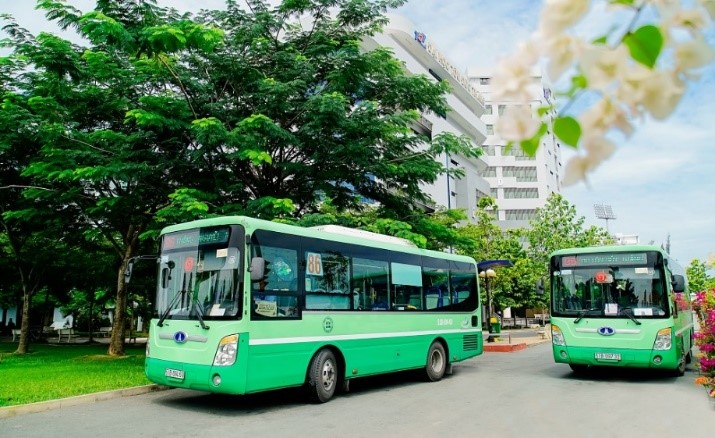
2) Continuing to implement the program of sorting waste at the sources; towards expanding the scope of the program to partner with high schools and localities which have comprehensive cooperation programs with TDTU; promoting scientific research and attracting investment in energy recovery waste treatment projects. (Photo 2 and 3).
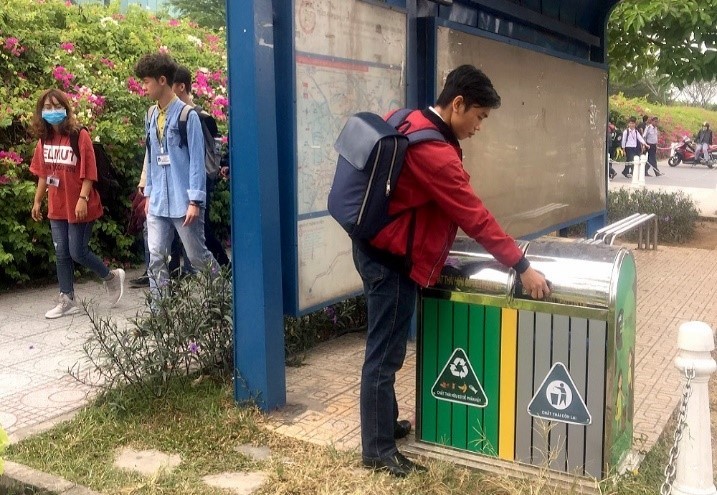
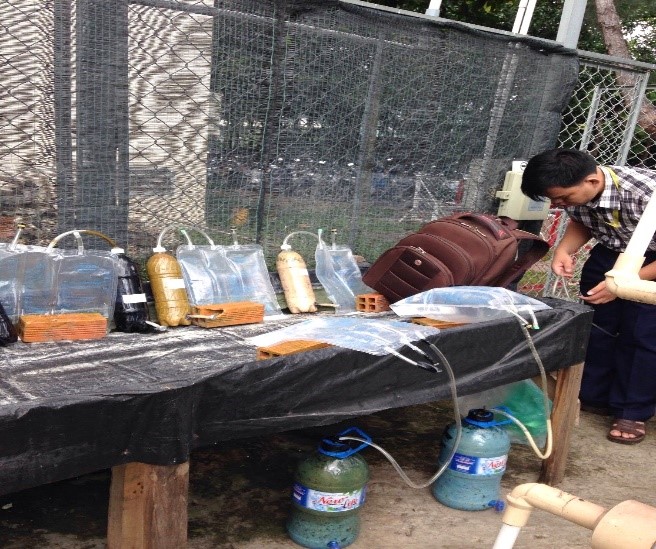
3) Expanding the proportion of clean energy use from Grid-connected Solar Power Generation System (Photo 4) for all TDTU buildings. This system is assembled for Vietnam-Finland International School, a unit under TDTU.
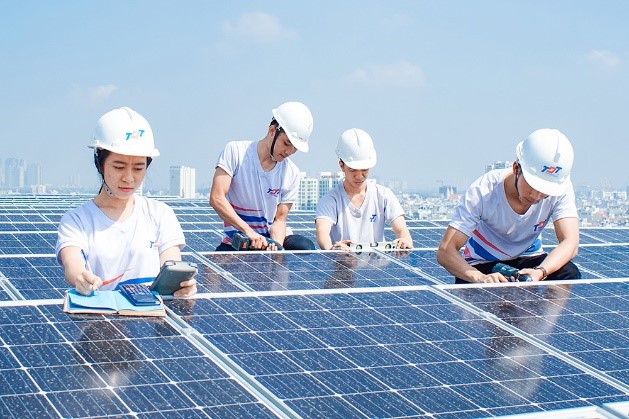
4) Enhancing management and auditing energy usage throughout the campus (Photo 5).
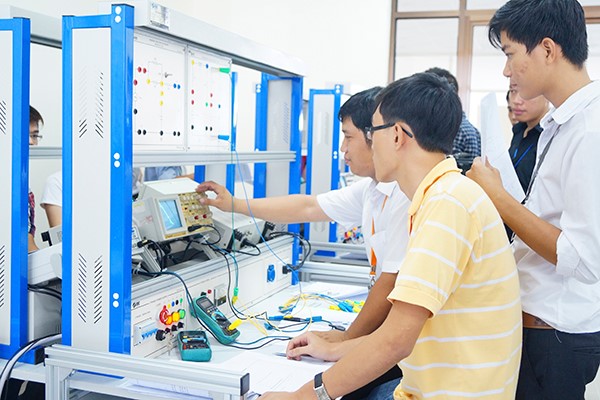
With the goal of stable and sustainable development, TDTU has been promoting the use of renewable energy; increasingly expanding the proportion of using clean, green resources for its activities, minimizing carbon production and greenhouse gas emission. TDTU will also carry out more programs / contents under the "Green Growth and Emission Reduction" activities, approaching the global trend to achieve sustainable development and effectively implement the program under the Paris Agreement. TDTU will be a green university, joining hands to contribute concrete actions to respond to climate change, to protect the Earth, the common home of generations today and tomorrow.


